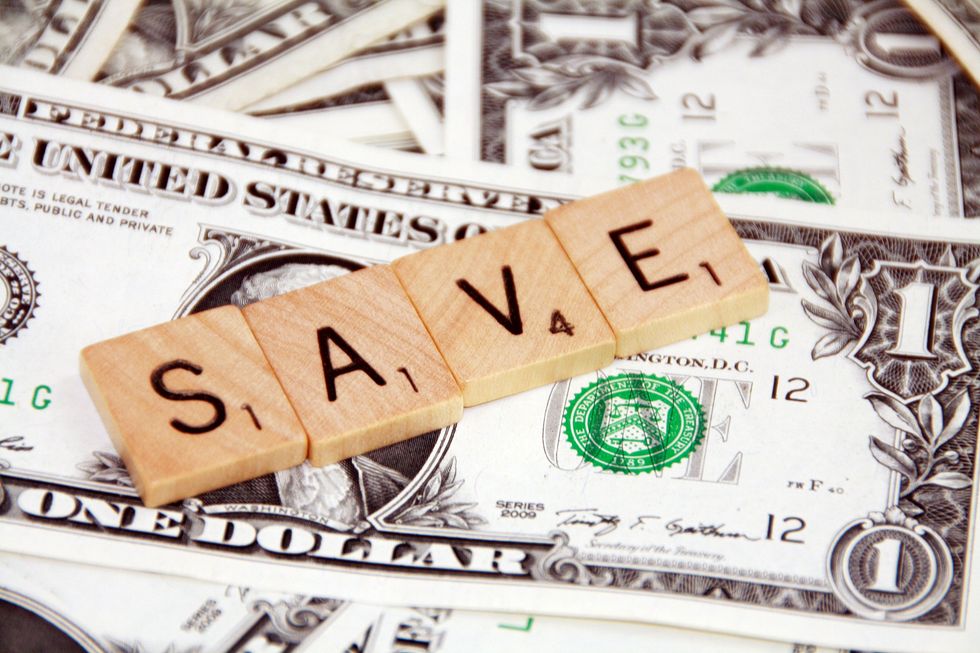Let go of the clutter and fuss, and start saving the big bucks. If you're looking towards the future at this time in your life, you're likely looking at cutting unnecessary costs and increasing your life savings for retirement. Some cost cutting can be done with simple, common-sense measures, such as monitoring your expenses and staying in, but other cost-saving changes can also go a long way to simplify your life. Going minimal with your housewares and goods, considering your new purchases as life-long (rather than season long) can surprisingly cultivate a lot in the way of inner Zen.
Here are a few ways you can save for the future while making your life just a little simpler.
Make a Budget
It sounds simple, but you'd be surprised at how much of a difference a concrete budget can make. Write down a list of all your monthly expenses. Take a look at your past bank statements and charges to get an idea of the range of your expenses month-to-month. Total up your expenses, either by hand or using a spreadsheet, and subtract these from your monthly income—and there you have your budget!
Automate Your Bill-Pay and Other Financial Matters
If you struggle to remember to pay bills month to month, consider automating bill pay and savings. Set up your utilities, internet, and other accounts to pay out at the same time you receive a paycheck to prevent too much spending (and to make your scheduling a little easier). You can even use an app such as Digit or Acorns to automate your savings month-to-month, ensuring you don't have to think too much about saving small. Before you know it, you might have yourself a nest egg.
Hold a Yard Sale
Unclutter your life. If you're looking to live a little less large, then one of the best ways you can recenter is through a little house cleaning and a little downsizing. You can hold a yard sale in your front lawn for a little extra cash, or you can resell some of your items online or at a local retailer. You'll get more for your bank account, and less clutter and flash for your living space. Win-win? We think so.
Start Small with Savings
You don't have to save all at once. Start off small. Try committing to saving a couple dollars a week—skip out on a morning coffee and stick the change in your bank account. Make it fun, or use it to kick-start a new habit, such as grabbing breakfast on the go at home instead of at your local coffee shop or fast food spot.
Follow This Simple Rule: One In, One Out
If you're having trouble with spending — and with household clutter — follow this rule: for every item you bring into your home, give one similar item away. If you're a maniac for clothes, keep your closet tidy by giving away as much as you buy. If you tend to collect knick-knacks, consider if there's anything you'd give away before you buy a new collectible for your mantle. Keep it simple. Consider the things you actually need and steer away from frivolous purchases.
Cook Meals at Home
Instead of going out to eat or buying food from fast food and convenience stores, try cooking a few meals at home. Not only will you be saving money by cooking at home, but you might also just find yourself with a new hobby. Make cooking fun by switching up your routine and throwing a few new recipes into your routine.
Sell Your Car
Particularly if you live in a city, you might be shelling out big bucks for your car, from parking, and storage to gas and regular maintenance. Make the switch over to biking or public transit to see if it's a viable option for you. As you phase out driving, consider listing your vehicle online, or selling your car to a local dealership for some extra money. Not only will you earn back a bit of cash, but you'll also be saving in the long run. If having a car is a necessity, consider selling your car and buying a new car that's a bit more suited to your needs. Lose the gas-guzzlers and go for the economical (and stylish) vehicles that will last you in the long run.
Trade in Your Vehicle
If you're not yet willing to sell your car, or if you use your car to get from point A to point B, consider trading in your vehicle for something more economical. If you're staring down a long drive to and from work every day, consider trading in for a vehicle with increased fuel economy, or for a significantly smaller vehicle. You might even go the electric route, to save the most money. When you're selecting a new vehicle for your trade-in, make sure you're accounting for your new car's monthly payments. Trading in for a car with significantly lower payments can free up a surprising amount of cash every month.






 The minimum wage is not a living wage.
StableDiffusion
The minimum wage is not a living wage.
StableDiffusion
 influential nations
StableDiffusion
influential nations
StableDiffusion












